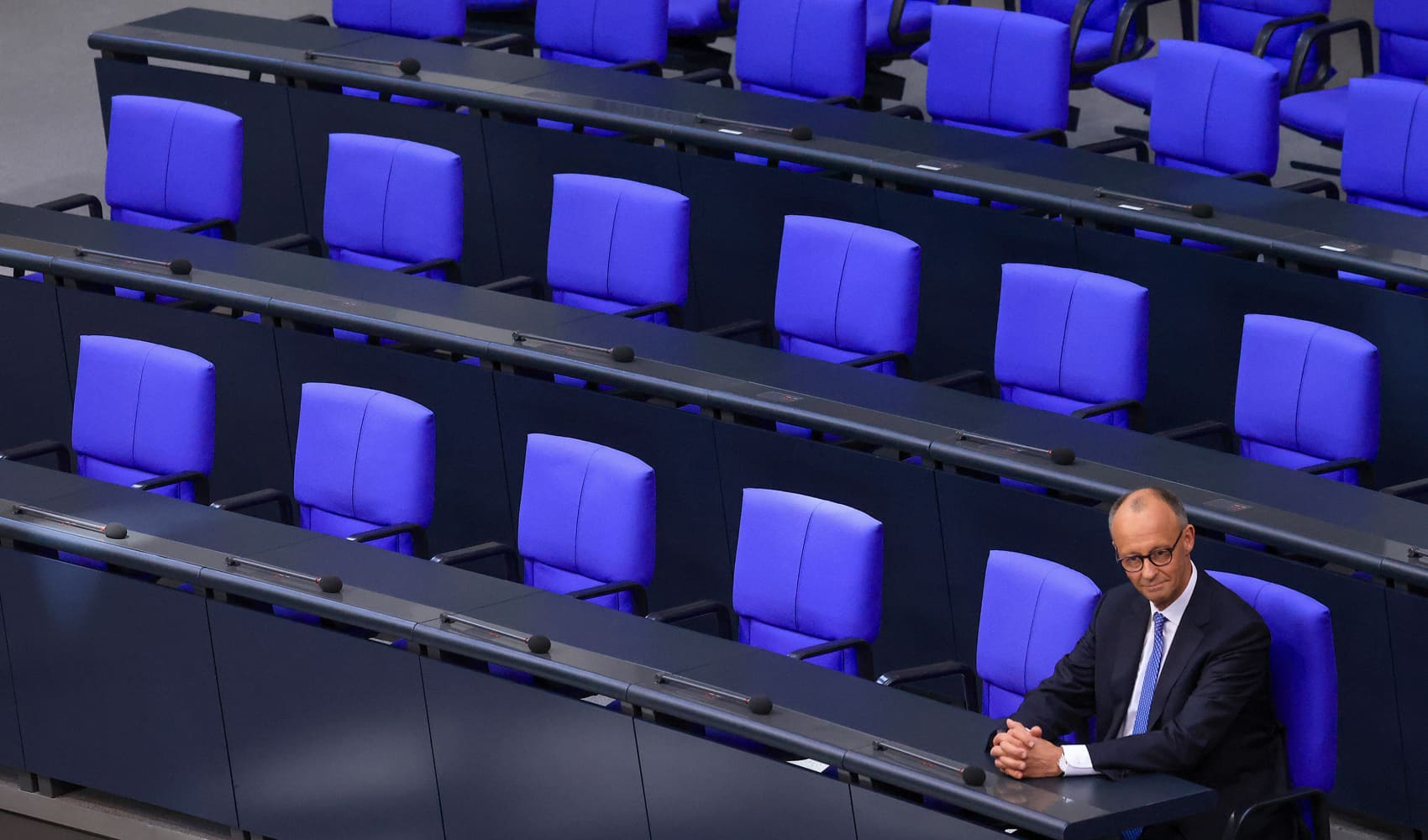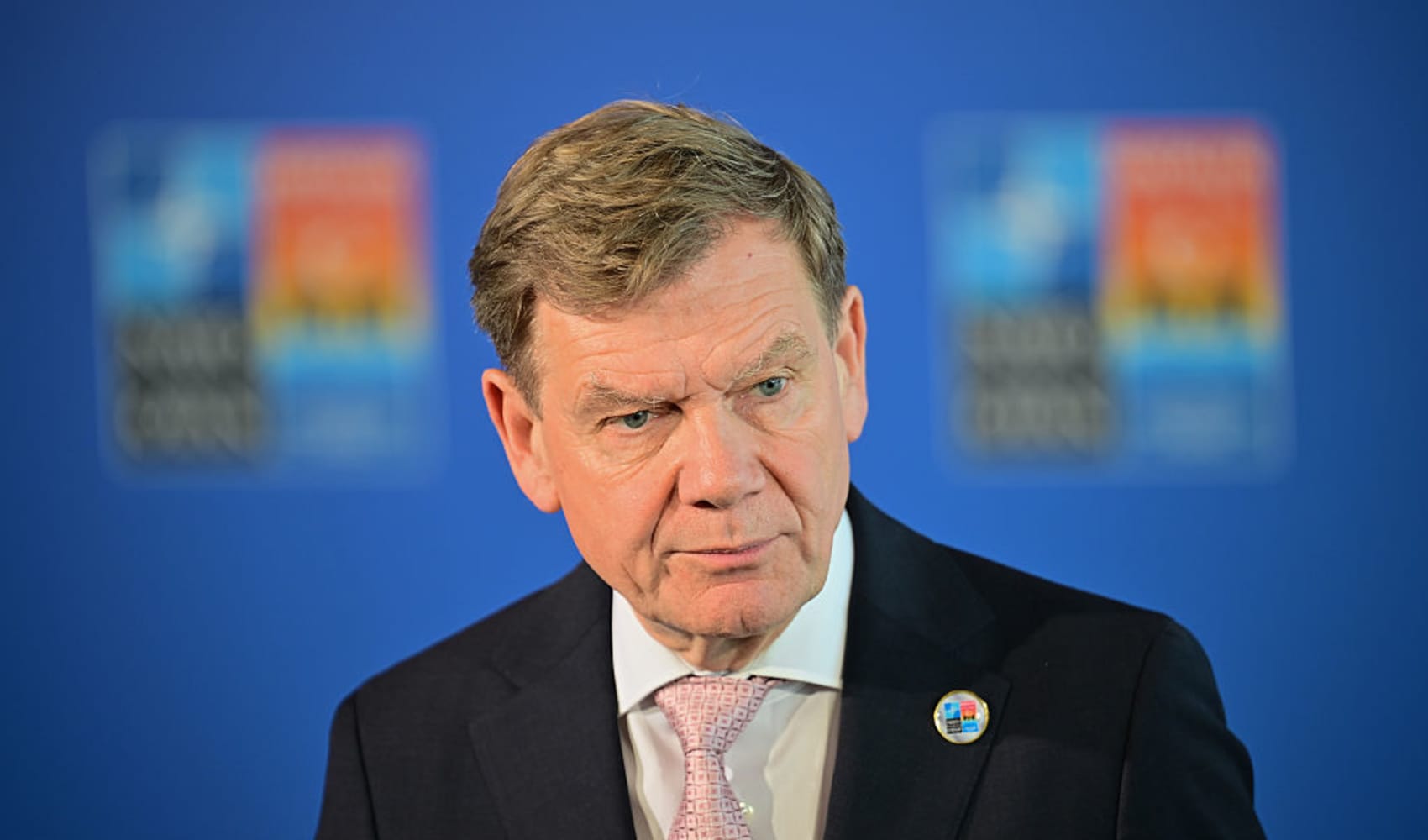Friedrich Merz: Germany's New Leader Faces HUGE Challenges
Friedrich Merz's Germany: Can He Conquer the Challenges Ahead?
A Rocky Start for Germany's New Chancellor
After a tense political period, Europe's economic powerhouse, Germany, finally has a new leader at the helm: Friedrich Merz. But his journey to the chancellorship wasn't exactly smooth sailing. In a dramatic turn of events, Merz initially failed to secure the necessary support in the first round of parliamentary voting – an unprecedented hiccup in modern German history. This setback has arguably bruised his image before he's even truly begun. Now, the real work begins. Will he be able to unite a nation and steer it towards economic prosperity?
The Weight of History and Expectations
An Unprecedented Beginning
The fact that Merz stumbled in the first round of voting is significant. It raises questions about the unity within the governing coalition and the level of support he truly commands. Such a public display of uncertainty is rarely seen in German politics, known for its stability and consensus-building. Is this a sign of things to come? Or can Merz quickly recover and establish his authority?
Inheriting a Complex Legacy
Merz steps into a role previously held by giants of German politics. He inherits not only the responsibilities of leading a major global power but also the legacy of his predecessors. This legacy comes with a set of expectations and comparisons. Can he measure up? Can he forge his own path while respecting the traditions of German leadership?
The Immediate Challenges Facing Merz
Uniting a Fractured Coalition
One of Merz's most pressing tasks is to maintain the stability of his coalition government. Diverse interests and priorities within the coalition could lead to friction and gridlock. His ability to negotiate compromises and build consensus will be crucial for effective governance. Can he keep everyone happy, or will internal divisions derail his agenda?
Reviving Germany's Stuttering Economy
Germany's economy, once the envy of Europe, has been facing headwinds in recent years. Rising energy prices, supply chain disruptions, and global economic uncertainty have all contributed to a slowdown in growth. Merz needs to implement policies that will stimulate investment, boost productivity, and create jobs. It’s not just about keeping pace; it's about reigniting the engine of European growth.
The Big Picture: Germany's Role in a Changing World
Navigating Geopolitical Tensions
The world is becoming increasingly complex and volatile. From the war in Ukraine to rising tensions in Asia, Germany faces numerous foreign policy challenges. Merz will need to navigate these challenges with skill and diplomacy, balancing Germany's interests with its responsibilities as a global leader. Can he maintain Germany's influence on the world stage?
Addressing Climate Change
Climate change remains one of the defining challenges of our time. Germany has committed to ambitious climate goals, but achieving them will require significant investment and policy changes. Merz needs to find a way to balance economic growth with environmental sustainability. This will require difficult choices and trade-offs. Will he prioritize green policies, or will economic concerns take precedence?
The Art of Leadership: Merz's Leadership Style
Building Trust and Confidence
After the initial setback in the election, Merz needs to rebuild trust and confidence among both his political allies and the German public. He needs to demonstrate that he is a capable and decisive leader who can deliver results. Trust is earned, not given. How will he earn the trust of a nation?
Communication and Transparency
Effective communication is essential for any leader. Merz needs to communicate his vision for Germany clearly and transparently, explaining his policies and decisions to the public. Openness and honesty will be key to building support and maintaining public trust. Will he be an open book, or a closed-door leader?
The Road Ahead: Challenges and Opportunities
Embracing Technological Innovation
Germany needs to embrace technological innovation to remain competitive in the global economy. This means investing in research and development, promoting digital literacy, and creating a supportive environment for startups. Merz needs to foster a culture of innovation and entrepreneurship. Can he transform Germany into a tech powerhouse?
Strengthening Social Cohesion
Germany, like many other countries, faces challenges related to social inequality and integration. Merz needs to address these issues by promoting social mobility, supporting education, and combating discrimination. A more equitable and inclusive society will be essential for Germany's long-term stability and prosperity. Will he bridge the divides in German society?
Economic Policies Under Merz: A New Direction?
Tax Reforms and Fiscal Policy
Expect potential shifts in tax policies under Merz, possibly geared towards incentivizing business investment and fostering economic growth. However, this approach will likely face scrutiny regarding its impact on income inequality. He will have to strike a delicate balance between encouraging wealth creation and ensuring fair distribution.
Investment in Infrastructure
Modernizing Germany’s infrastructure is crucial. Look for increased investment in transport, energy, and digital infrastructure to improve efficiency and connectivity. This is an investment in Germany's future, setting the stage for long-term economic growth.
Foreign Policy Shifts: A More Assertive Germany?
Defense Spending and Military Modernization
Given the current geopolitical climate, increased defense spending is likely, aimed at modernizing the German military and enhancing its role within NATO. This signals a more assertive stance on international security.
Relationship with the European Union
Germany’s relationship with the EU will remain central, but expect Merz to advocate for German interests more assertively, particularly in economic and trade matters. He’ll have to balance national interests with the need for European unity.
Social Policies: Addressing Key Issues
Immigration and Integration
Expect nuanced approaches to immigration and integration policies. There may be stricter enforcement of existing laws, combined with programs aimed at better integrating immigrants into German society. Finding the right balance is key to maintaining social harmony.
Healthcare Reforms
Germany's healthcare system is world-renowned, but it faces challenges. Merz could introduce reforms to improve efficiency and affordability, while maintaining high standards of care. The goal will be to ensure quality healthcare for all Germans.
The Specter of Populism
The rise of populist movements across Europe is a significant challenge for established political parties. Merz must address the concerns of voters who feel left behind by globalization and economic change. Ignoring these concerns could further fuel the growth of populism in Germany.
Conclusion: A Defining Moment for Germany
Friedrich Merz's chancellorship represents a pivotal moment for Germany. He faces a daunting array of challenges, from economic stagnation and geopolitical tensions to social divisions and the rise of populism. His success or failure will have significant implications not only for Germany but also for Europe and the world. The road ahead is undoubtedly tough, but with strong leadership, clear vision, and a commitment to unity, Merz has the opportunity to lead Germany to a brighter future. Will he rise to the occasion? Only time will tell.
Frequently Asked Questions
- What was the reason for Merz's initial failure to secure the chancellorship?
- The exact reasons are complex, but it suggests a lack of complete unity within the governing coalition and potentially some reservations about his leadership style.
- What are the key priorities for Merz's economic policy?
- Revitalizing economic growth, boosting investment, addressing rising energy costs, and promoting technological innovation are likely to be central to his economic agenda.
- How will Merz's chancellorship affect Germany's role in the European Union?
- Expect Germany to remain a key player in the EU, but with Merz potentially advocating more assertively for German interests, particularly in economic and trade policies.
- What are the main challenges in uniting the coalition government?
- Diverse interests and priorities among the coalition parties can lead to disagreements on policy issues, requiring strong negotiation skills to achieve consensus.
- How is Merz likely to address climate change while considering economic growth?
- He will likely seek a balance between environmental sustainability and economic competitiveness, potentially focusing on technological solutions and market-based mechanisms to reduce emissions.

